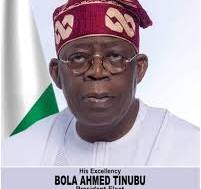Nigeria as a nation with more than 200 million population density, faces several significant predicaments that impact its development and well-being for a very long time. The predicaments may have evolved since then and the citizens are presently in a very sorry side and the following are key predicaments the country has been grappling with:
1. Insecurity: Nigeria has been dealing with various security threats, including terrorism, insurgency, banditry, communal clashes, and kidnapping. Boko Haram, a terrorist group operating mainly in the northeastern zone, has caused significant damage and displacement. Additionally, the rise of armed banditry in the northwest and the clashes between farmers and herders in the north central Nigeria have contributed to the overall insecurity.
2. Economic challenges: Nigeria’s economy heavily relies on oil exports, making it susceptible to fluctuations in global oil prices. The country has faced economic downturns, inflation, high unemployment rates, and poverty. The COVID-19 pandemic further exacerbated these challenges, leading to reduced economic activity and increased hardship for many Nigerians.
3. Corruption: Corruption has been a persistent issue in Nigeria, affecting various sectors, including politics, public administration, and business. It undermines public trust, hampers development efforts, and diverts resources away from critical areas such as healthcare, education, and infrastructure.
4. Infrastructure deficit: Nigeria faces significant infrastructure gaps, including inadequate power supply, poor road networks, limited access to clean water and sanitation, and insufficient healthcare facilities. These deficiencies hinder economic growth, limit opportunities, and impact the overall quality of life for Nigerians.
5. Socio-political tensions: Nigeria is a diverse country with multiple ethnic, religious, and regional identities. These diversities, if not managed properly, can lead to tensions and conflicts. Ethno-religious clashes, political unrest, and a sense of marginalization among certain groups have been persistent challenges.
At present, the country is facing significant challenges such as rising food prices, increased insecurity, and overall difficulty in people’s lives all as a result of the subsidy oil removal by the present government of HE Bola Ahmed Tinubu, it may be necessary to go back to the drawing board and reassess its policies, strategies, and approaches and the following are a few reasons why I suggest the country might consider starting afresh:
1. Policy evaluation: Going back to the drawing board allows a country to critically evaluate its existing policies and determine if they are still effective in addressing the current challenges. It provides an opportunity to identify gaps, weaknesses, and areas for improvement.
2. Adaptation to changing circumstances: Societies and economies are constantly evolving, and what worked in the past may not be suitable for the present circumstances. By going back to the drawing board, Nigeria can better adapt to changing conditions and develop new strategies that align with the current realities.
3. Holistic approach: Addressing complex issues requires a comprehensive and integrated approach. Going back to the drawing board Will enables the country to take a step back, assess the interconnectedness of various challenges, and design holistic solutions. This may involve collaborating with different sectors, engaging stakeholders, and considering long-term sustainability.
4. Stakeholder involvement: due to present difficulties Nigeria and Nigerians are facing, it is crucial to involve various stakeholders, including citizens, experts, civil society organizations, and the private sector. By going back to the drawing board and engage these stakeholders in the decision-making process, gather diverse perspectives, and build consensus on the way forward.
5. Innovation and creativity: Difficult times often call for innovative solutions. By starting afresh, Nigeria can encourage out-of-the-box thinking, foster creativity, and explore new approaches to address the challenges at hand. This may involve exploring alternative agricultural practices, promoting entrepreneurship, or investing in technology and infrastructure.
6. Rebuilding trust and confidence: High levels of insecurity, rising food prices, and overall difficulty erode trust in the government and institutions. Going back to the drawing board provides an opportunity for the Nigeria’s leadership to rebuild trust by demonstrating a commitment to addressing the challenges and improving the lives of its citizens.
In conclusion, it is important to note that going back to the drawing board is not a quick fix, and the process can be complex and time-consuming. It requires strong leadership, political will, and a genuine commitment to change. However, by undertaking this process, i believe Nigeria can lay the foundation for a more sustainable and prosperous future.









